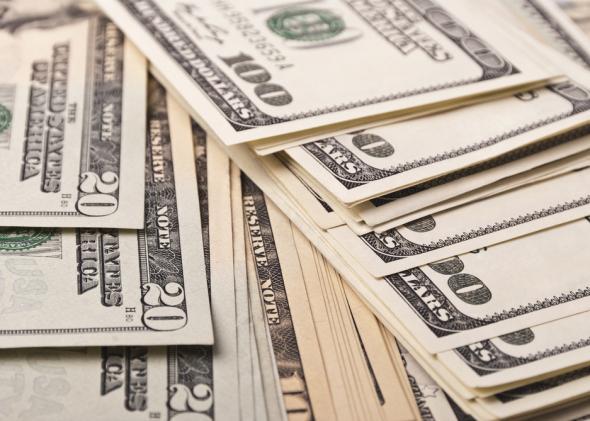I’m 26 years old, and money is still something I regard with blank confusion and dismay. When it comes up in conversation, which it rarely does, or when—paying rent or filing taxes—I have occasion to consider its long-term management, I have the sensation of standing outside a diamond-plated skyscraper, looking up. Money has its own smell. It can be on a plastic card (in a plastic card?), a column of charges on your bank statement, or ink on a check. It is a metaphor you can touch, and it powers the world.
My point is: When you really start thinking about the mysterious phenomenon of money and all the rituals and institutions that encircle it, it’s weird. Maybe everyone feels like this, or maybe women do especially. On Monday, Adult magazine published a roundtable discussion called “Money: It’s Terrible,” which gathered together various North American women from various socio-economic backgrounds and asked: “What if women started talking about money the way we talk about everything else?” What would we learn about financial literacy and how gender factors in?
The dynamic between Woman and Mammon remains, unsurprisingly, fraught. Money equals power, and women relate to power in complex, often ambivalent ways. What’s more, men have traditionally held the family purse strings, communicating economic wisdom and advice to their sons but not their daughters. “Honestly,” writes one of the Adult contributors, “I feel a lot of my ‘badness’ with [money] comes from not being taught shit about it … whereas my husband, as soon as he got his bar mitzvah money, was taught by his dad how to handle it, plan, et cetera.”
Although women comprise half the U.S. workforce and control more than 50 percent of the country’s wealth, they are vastly underrepresented in the finance sector, and they consult with financial advisers less frequently than men. Lady hedge-fund managers deliver higher annualized returns than their male peers (9 percent versus 5.82 percent), and yet: Women tend to doubt their own decision-making, writes Suzanne Miller in a Forbes column about the female reluctance to deal with dollars and cents. “Low confidence and fear can translate into avoidance that results in not taking charge of one’s financial future.”
This queasiness around lucre starts early: In a Psychology Today article, Olivia Mellan and Karina Piskaldo describe a study in which high school students were queried about their financial know-how. Although boys and girls showed similar aptitude in a spate of quizzes, the boys tended to say they were “pretty good” with money, while the girls responded that they were “not very good.” Similarly, research suggests that when men score big in the stock market, they attribute their success to skill and cleverness, whereas prosperous women more often credit advisers, luck, or even the position of Mercury relative to Jupiter. What’s more, the steadfast fact of the wage gap plays a part in our financial insecurity. Bag-lady syndrome, which has haunted high-rollers like Lily Tomlin, Gloria Steinem, Shirley MacLaine, and Katie Couric, describes a weirdly common anxiety among women that they will wind up destitute and on the streets.
Why is this? According to the collage of responses in Adult magazine’s roundtable (and to me), there is a lingering sense among women that money is for dudes—to own, understand, and bend to their purposes, but also to worry about. Writer Fiona Duncan says:
I remember being a young girl and thinking that I could pick any career, regardless of how it paid, because I wouldn’t have to worry about making or managing money; I’d eventually have a boyfriend or husband who did that. And I was raised in a feminist household with two breadwinners.
Yet her desire for equality in her relationships forced her to revise her philosophy of personal finance:
Only recently, like two months ago, did it dawn on me that my ideas about money and jobs needed to be updated to fit my love and kinship ideals. So now I’m talking money with everyone, trying to learn from whomever will teach me.
Bramble Trionfo, recalling her father’s deathbed command—“Look after your mother, look out for your brother, and please marry a man with money”—admits that “now, in a sick way, a partner with financial stability is something extremely important to me.”
I doubt she consciously believes that men are more suited to breadwinning, that they should be the ones balancing books and processing ledgers. It is just that money, as a domain of knowledge, has all the encrustations from years of sexism and female dependence. It still seems like a “guy thing,” and breaking in requires conscious effort. So here’s my TL;DR takeaway from the Adult piece, which comes at the question of women and finance from more fascinating angles than one blog post can hope to cover: Money signifies power and choices, and on some level we’re still adjusting to the notion that those things are rightfully ours.
